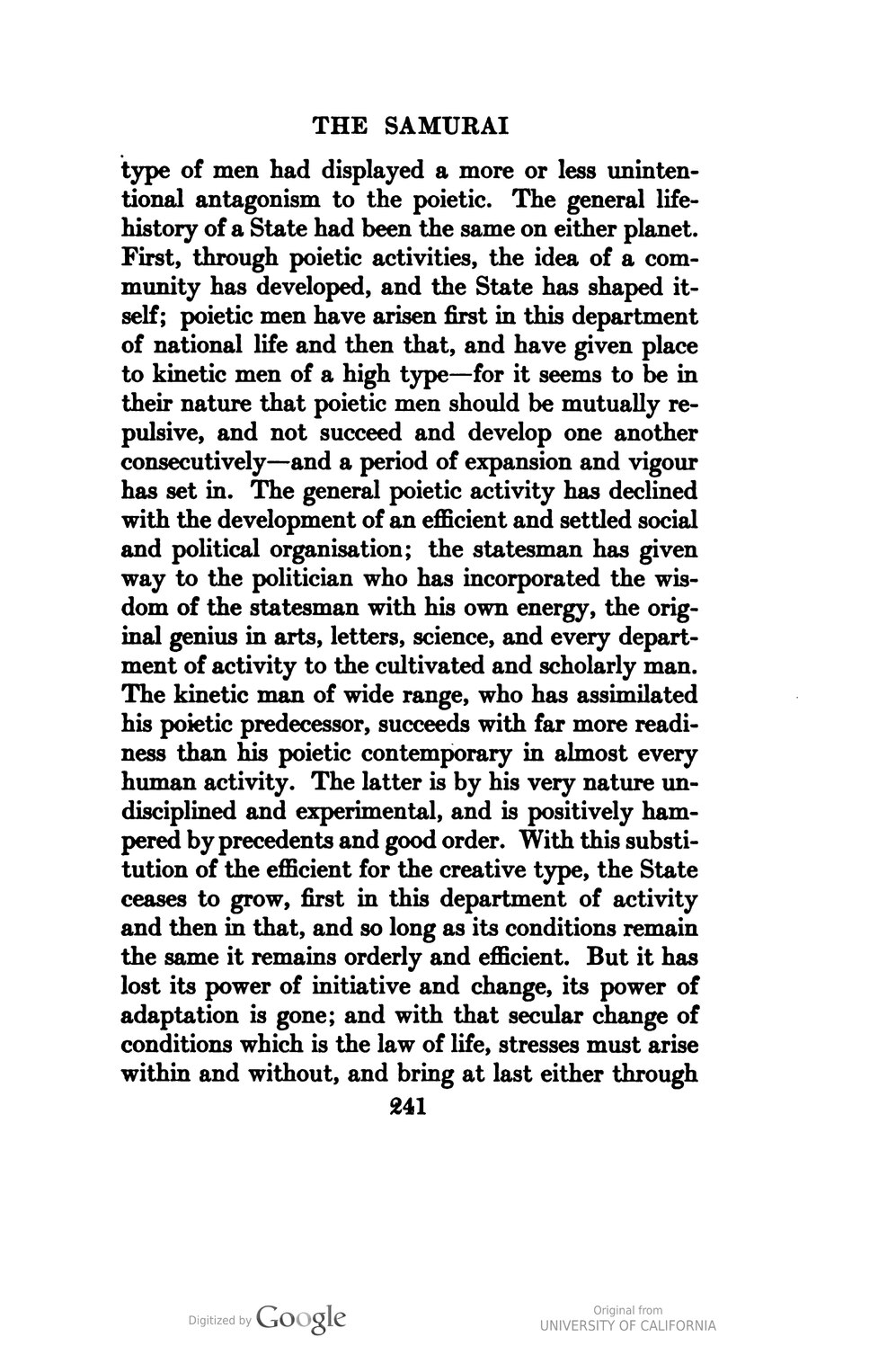THE SAMURAI
type of men had displayed a more or less unintentional antagonism to the poietic. The general life-history of a State had been the same on either planet. First, through poietic activities, the idea of a community has developed, and the State has shaped itself; poietic men have arisen first in this department of national life and then that, and have given place to kinetic men of a high type—for it seems to be in their nature that poietic men should be mutually repulsive, and not succeed and develop one another consecutively—and a period of expansion and vigour has set in. The general poietic activity has declined with the development of an efficient and settled social and political organisation; the statesman has given way to the politician who has incorporated the wisdom of the statesman with his own energy, the original genius in arts, letters, science, and every department of activity to the cultivated and scholarly man. The kinetic man of wide range, who has assimilated his poietic predecessor, succeeds with far more readiness than his poietic contemporary in almost every human activity. The latter is by his very nature undisciplined and experimental, and is positively hampered by precedents and good order. With this substitution of the efficient for the creative type, the State ceases to grow, first in this department of activity and then in that, and so long as its conditions remain the same it remains orderly and efficient. But it has lost its power of initiative and change, its power of adaptation is gone; and with that secular change of conditions which is the law of life, stresses must arise within and without, and bring at last either through
241
